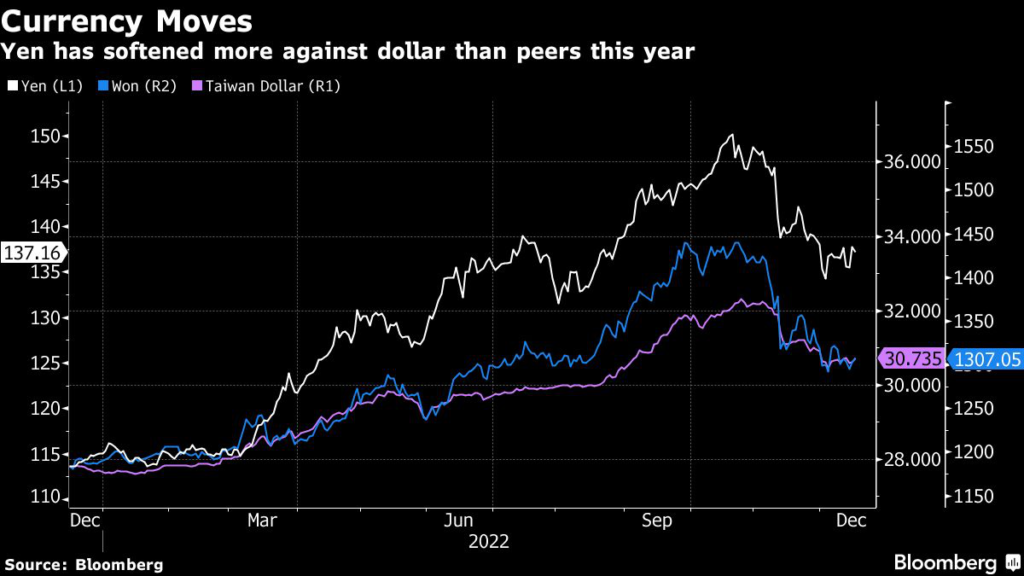Japan’s economic clout calculated per person is seen slipping behind neighbors such as Taiwan and South Korea, a likely development accelerated by the yen’s slide that raises concerns about the country’s long-term growth prospects.
(Bloomberg) — Japan’s economic clout calculated per person is seen slipping behind neighbors such as Taiwan and South Korea, a likely development accelerated by the yen’s slide that raises concerns about the country’s long-term growth prospects.
The dollar’s strength this year has battered currencies around the world, but the yen has taken a bigger hit than either the won or the Taiwan dollar, leading to a less favorable comparison of gross domestic product in dollar terms.
Japan’s nominal gross domestic product per capita is expected to have already fallen below Taiwan’s this year and is projected to be smaller than South Korea’s in 2023, according to a report this week by the Japan Center for Economic Research.
The institute previously forecast it would take until at least 2027 before the two neighboring economies would outrun Japan on a per person basis.
While the exchange rate has clearly been the main factor bringing forward the expected development, the trend points to the stronger growth trajectories of the smaller economies.
“One reason behind the huge difference in exchange rates is Japan’s enormous trade deficit. Korea’s trade balance is better than Japan’s,” said economist Atsushi Takeda at Itochu Research Institute. “The difference in export power is clear. Japan’s export competitiveness is clearly declining.”
Economists point out that a mature economy like Japan’s can’t be expected to expand at the same pace as emerging rivals.
Still, the trend can’t simply be blamed on Japan’s aging population, Takeda indicated, since Korea also faces the issue of a declining birthrate.
Japan’s rivals are better harnessing and developing their tech sectors, the report indicated.
The report cited sluggish growth in labor productivity, driven by slow progress in digitalization, as a factor behind Japan’s gloomier growth prospects. The institute expects South Korea and Taiwan to further accelerate digitalization, helping them outrun a Japanese economy where paper forms, hanko stamps and even fax machines are still used by many companies and government bodies.
“In terms of cutting-edge technology, there are many areas where Japan is already behind and semiconductors are a good example,” Takeda said. He noted that the government has started making large investments to narrow the technology gap.
“Still, the number of fields in which Japan has an advantage is steadily decreasing,” he said.
More stories like this are available on bloomberg.com
©2022 Bloomberg L.P.











